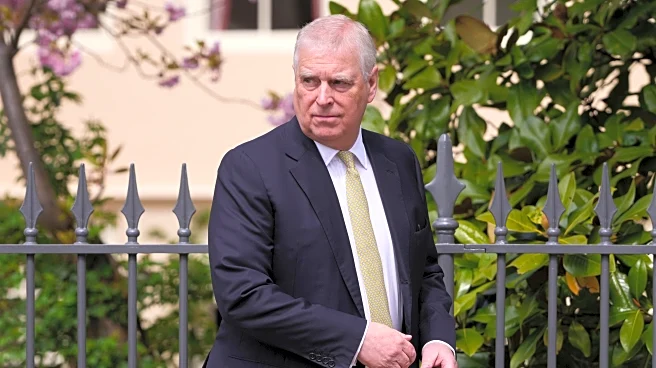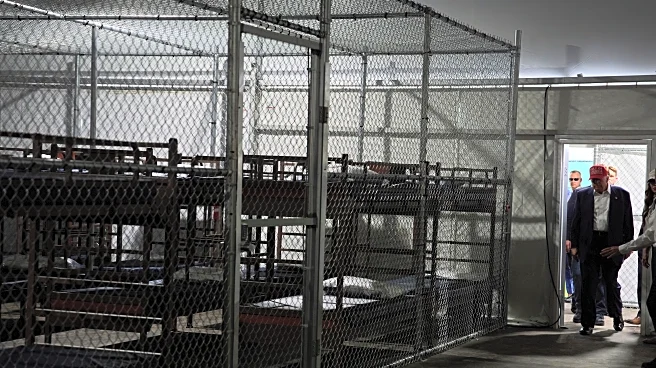What's Happening?
Karen Finnerty, a resident of Watkinsville, Georgia, has been reunited with a significant piece of her late father's military history. James Underwood, her father, served in General George Patton's 3rd
Army during World War II. A dog tag belonging to Underwood was discovered in the Savernake Forest in Marlborough, England, by Karl Cranham, who was hiking in the area. Cranham, realizing the importance of the find, contacted the Barnesville Herald Gazette in Georgia, which led to Finnerty being informed about the discovery. The dog tag, which had been lost for 82 years, provided Finnerty with a deeper connection to her father's military service, which he rarely discussed during his lifetime.
Why It's Important?
The discovery of James Underwood's dog tag is significant as it offers a tangible connection to the past for his family, particularly for his daughter, Karen Finnerty. It highlights the enduring impact of World War II on families and the importance of preserving military history. For Finnerty, the dog tag is not just a relic but a key to understanding her father's experiences and contributions during the war. This event underscores the broader theme of how personal artifacts from historical events can bridge generational gaps and foster a deeper appreciation for the sacrifices made by previous generations.
What's Next?
Karen Finnerty plans to share the dog tag with her siblings and intends to include it with her father's reissued service medals. This act will serve as a tribute to her father's service and a means to preserve his memory for future generations. The family may also explore further research into Underwood's military service to gain a more comprehensive understanding of his role in World War II. This discovery could inspire other families to seek out and preserve their own historical artifacts, ensuring that the stories of veterans are not forgotten.
Beyond the Headlines
The return of the dog tag after so many years also raises questions about the preservation of military artifacts and the stories they hold. It highlights the role of chance in historical discoveries and the importance of individuals like Karl Cranham, who recognize the value of such finds. This event may encourage more people to explore historical sites and contribute to the preservation of history. Additionally, it reflects on the broader cultural and historical significance of World War II and how its legacy continues to resonate in personal and collective memory.










